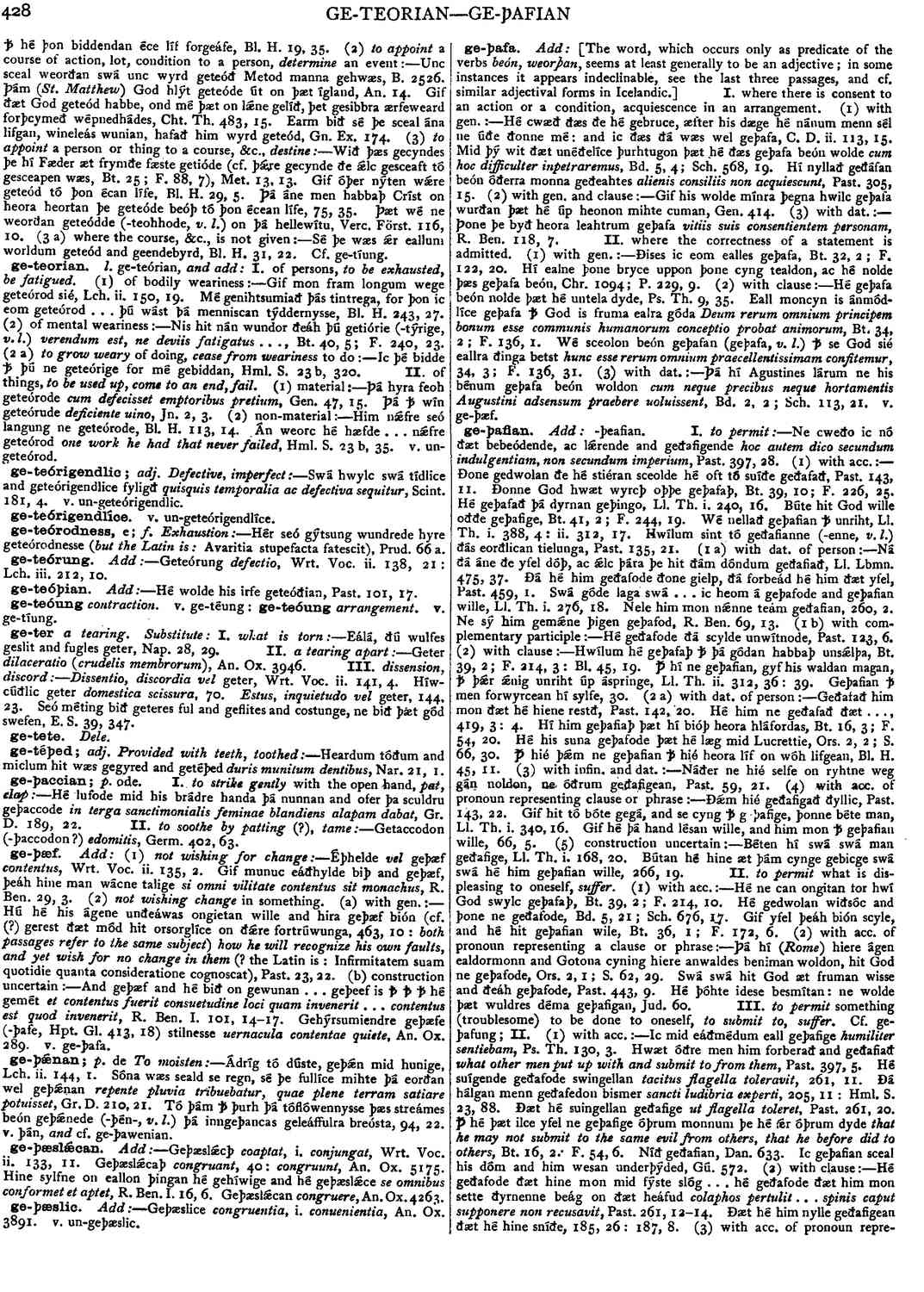ge-þafa
-
Hé cwæð ðæs ðe hé gebruce, æfter his dæge hé nánum menn sél ne úðe ðonne mé: and ic ð æs ðá wæs wel geþafa,
- C. D. ii. 113, 15.
-
Mid þý wit ðæt unéðelíce þurhtugon þæt hé ðæs geþafa beón wolde
cum hoc difficulter inpetraremus,
- Bd. 5, 4; Sch. 568, 19.
-
Hí nyllað geðáfan beón óðerra monna geðeahtes
alienis consiliis non acquiescunt,
- Past. 305, 15.
-
Gif his wolde mínra þegna hwilc geþafa wurðan þæt hé úp heonon mihte cuman,
- Gen. 414.
-
þone þe byð heora leahtrum geþafa
vitiis suis consentientem personam,
- R. Ben. 118, 7.
-
Ðises ic eom ealles geþafa,
- Bt. 32, 2 ; F. 122, 20.
-
Hí ealne þone bryce uppon þone cyng tealdon, ac hé nolde þæs geþafa beón,
- Chr. 1094; P. 229, 9.
- Hé geþafa beón nolde þæt hé untela dyde. Ps. Th. 9, 35.
-
Ball moncyn is ánmód-líce geþafa ꝥ God is fruma ealra góda
Deum rerun omnium principem bonum esse communis humanorum conceptio probat animorum,
- Bt. 34, 2 ; F. 136, 1.
-
Wé sceolon beón geþafan (geþafa, v. l.) ꝥ se God sié eallra ðinga betst
hunc esse rerum omnium praecellentissimam confitemur,
- 34, 3; F. 136, 31.
-
Þ á hí Agustines larum ne his bénum geþafa beón woldon
cum neque precibus neque hortamentis Augustini adsensum praebere uoluissent,
- Bd. 2, 2 ; Sch. 113, 21.
Bosworth, Joseph. “ge-þafa.” In An Anglo-Saxon Dictionary Online, edited by Thomas Northcote Toller, Christ Sean, and Ondřej Tichy. Prague: Faculty of Arts, Charles University, 2014. https://bosworthtoller.com/50053.
Checked: 0